Slipstream: Building the next generation of American champions
The development squad for Garmin-Slipstream has been steadily churning out the next generation of top talent from the USA. After sweeping the under-23 national championships the team has become a formidable squad in the domestic ranks.
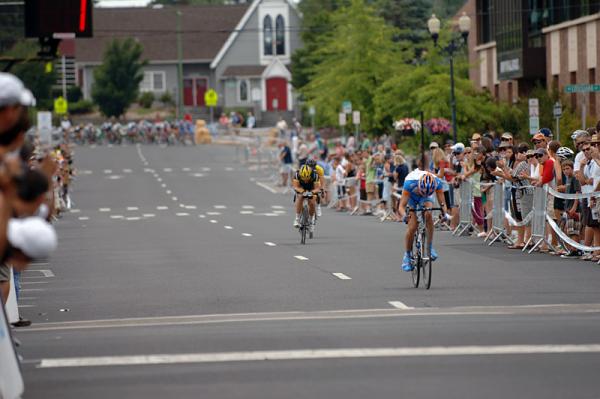
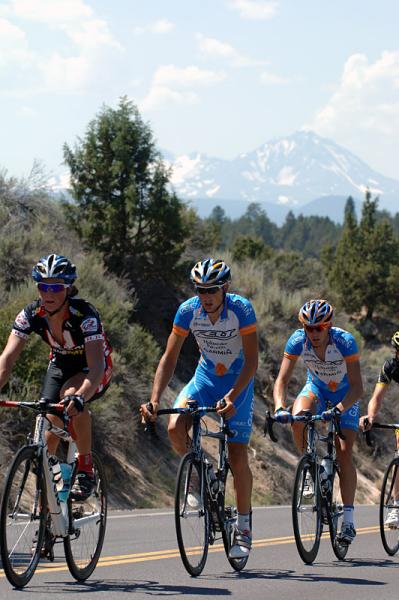
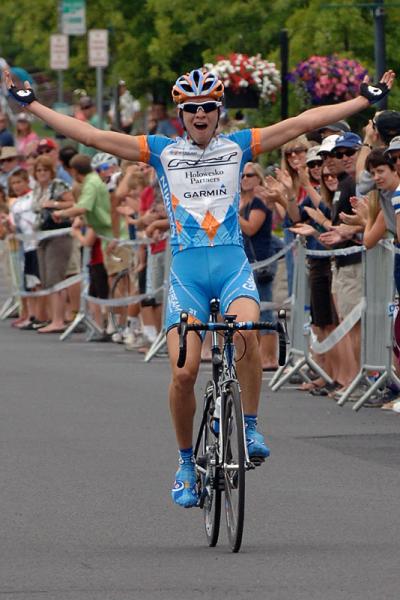
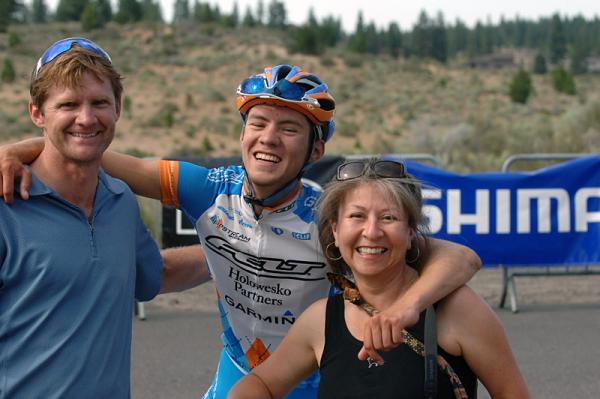
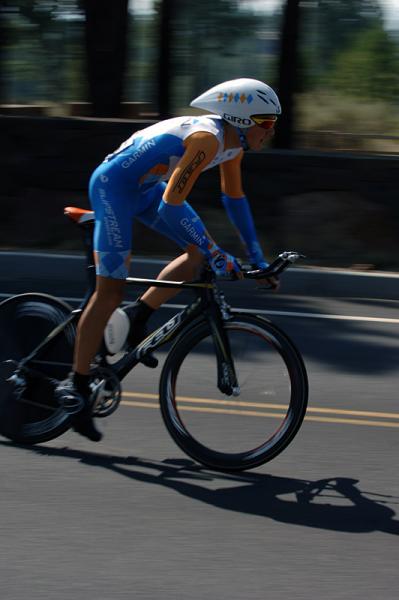
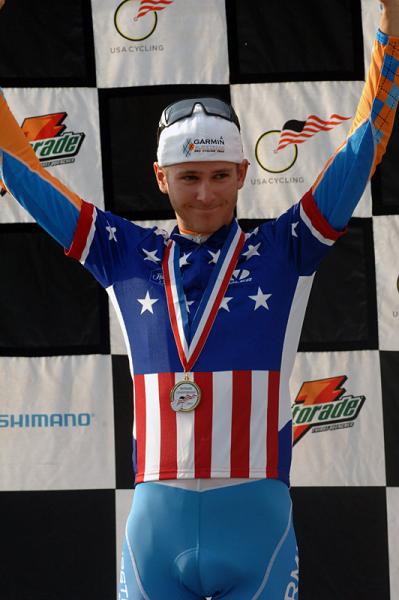
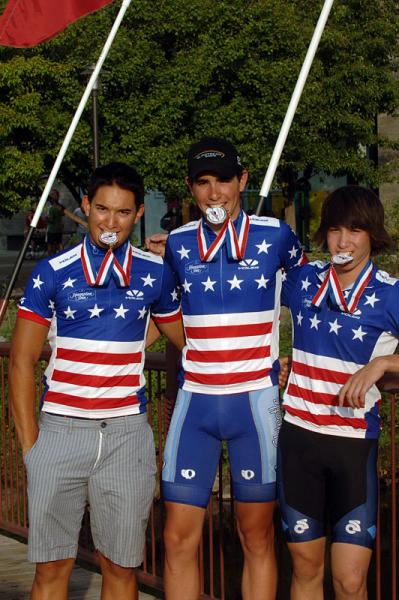
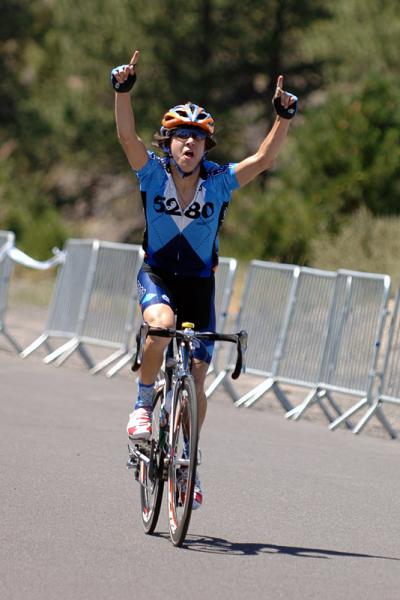
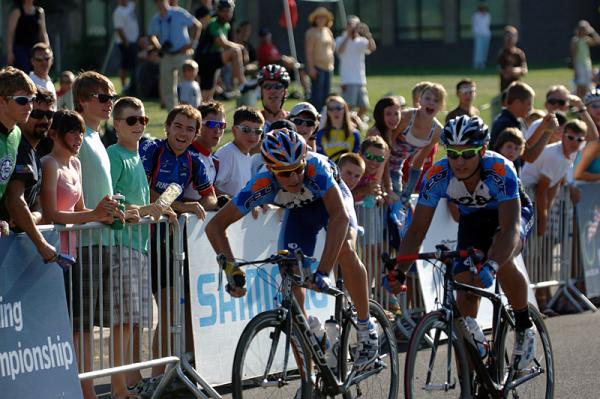
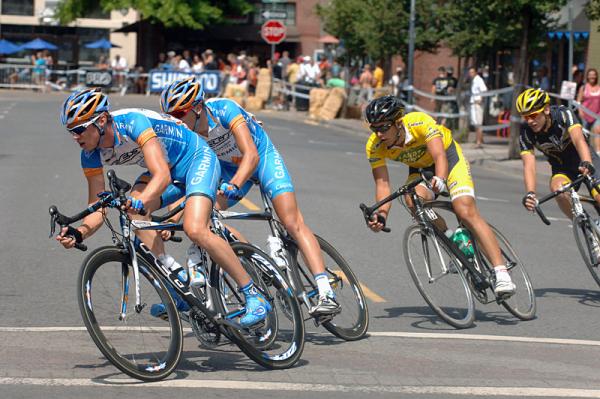
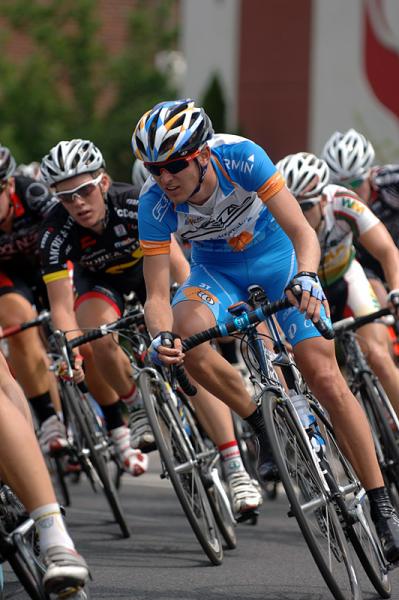
The Felt-Holowesko Partners-Garmin U23 team has taken full advantage of the tutelage provided by director Chann McRae, who has led the team to the overall team classification title at the Tour of Redlands, as well as the best young rider, climber and points jerseys at the Cascade Cycling Classic.
The team grew out of the squad which Garmin-Slipstream manager Jonathan Vaughters created after retiring from the pro ranks, and is in the process of turning out the next generation of top US professional riders.
"The whole mission for Garmin-Slipstream is to develop the new generation of clean cyclists and bring them into the ProTour," said McRae.
"If you look at Rabobank they've got the Rabobank Continental Team and they're all very good. Probably 60-70 percent of them could be on a ProTour team. So you have Rabobank Continental feeding into Rabobank, for us at Garmin you need a development team as well. It raises the bar, it creates better riders who are going to go into the ProTour"
McRae has acted as a race director for both the U23 and ProTour riders since 2008 and he discussed the different challenge of working with the U23 riders who are very much a work in progress.
"It's a lot different because on a ProTour team you're not teaching anymore. They've learned everything they're going to learn. Tactically you help them win, but they know how to win races and they know how to do teamwork."
"We have guys who are first year seniors on the U23 team, fresh out of the Juniors, and they have no clue how to do team riding yet. For example, how do you ride for a guy who's leading the mountains classification or the sprinter's classification. You have to actually spell it out to them, teach them and tell them how to ride in the gutter so that their teammates are sheltered all day long. They don't know how to do that yet.
The latest race content, interviews, features, reviews and expert buying guides, direct to your inbox!
"You're teaching all of that teamwork stuff and then on top of that you're teaching them how to slip into breakaways. They're going up against riders who're 27-28 years old and have more power than they do because they're only 18 or 19 years old. They have to start slipping into breaks before they can even think about winning races. That's kind of the first thing we try to teach. I don't care if you go into the breakaway and get dropped, as long as you got into the breakaway that's the first part of the process."

Success in Bend shows lessons have been learned
The team took its first national title of the year in Bend, Oregon, at the under-23 road race championship. Under searing heat and on a hilly 162km course, the team showed it had learned its lessons well. Alex Howes claimed the win after the team put three riders into the winning move.
While it was expected that the team would be in the mix at the finish, McRae was impressed by the manner in which Howes claimed his first career championship.
"The difference between second and first is big. Most people don't know that to pull off wins is a whole different thing than getting second place. Our whole philosophy this year was just getting to that point which Alex accomplished in the road race."
The team had a tactical advantage by putting seven riders on the start line, three of whom made the winning breakaway: Howes, Peter Stetina and Peter Salon. The trio used the tactical knowledge learned from their experienced directors to set Howes up for victory, but it was through the grit and tenacity of a champion that he was able to seal the title.
"When it came into those last five or six kilometres it was down to three of us and every single one of us was completely wrecked," said Howes. "Guys would try to put in attacks and it was just slow motion. I was cramping up left and right and was just trying to make something happen but the body just wouldn't give anything. It came down to a sprint because each of us was too tired to get away. In that final sprint there were no tactics, it was just a straight-up drag race."
Stetina may have sacrificed his chances at the stars and stripes in the road race, but he would get his chance to don the jersey in the time trial - repeating his victory of 2008. While he dominated the event last year, he was up against stronger competition this season.
"I knew I had a shot. I was pretty motivated to keep it [national title] so I could keep the automatic qualification for the world championship time trial," said Stetina. "I didn't want to focus on trying to peak for some other time trials and then just come into worlds tired.
"Everything was so smooth. The team just rolled over to the start together and everyone did their thing. The staff had everything ready, we had the bikes set up in the shade when we got there, everyone made it so easy on us that all we really had to do was ride our bikes fast.
Chann McRae, waiting at the finish line, raised his eyebrows at the ride put in by Trek-Livestrong's Bjorn Selander. "I knew Selander was on good form because of his ride at [Tour de] Beauce. So I'm standing there at the finish line and Selander comes in and they say 'new best time for Bjorn Selander.' And then Peter comes through 33 seconds faster to win the time trial two years in a row.
"That speaks volumes for the program because it's hard to back up a national time trial championship performance like that."
On the final day of the national championships two days later, Howes would claim his second national championship in a similar manner to his road race victory - by getting into the breakaway. Once again his team sacrificed itself to set up the win, and Howes wasn't about to let them down.
"Coming down towards the end I thought 'my teammates have worked so hard to make sure I have the opportunity to win this race there's no way that I can lose this.' If I was to have lost that race I would have just kept on riding straight and never come home," said Howes.
"I don't think I would have been able to look at those guys. With that kind of motivation, knowing that my teammates had really laid it on the line for me, as soon as I got away from the other two riders in the breakaway with a lap and a half to go I was gone. I was going to completely self-detonate or win."

Strong infrastructure breeds success
Aside from the physical requirements for success at the national and international level, the psychological makeup and team chemistry play an important role in the team's success, something which has been fostered by McRae and Vaughters as well as among the riders themselves.
"Obviously JV [Jonathan Vaughters] is in a really powerful position in the world of cycling right now but he still checks in every week and wants to know how the U23 program is going," said McRae. "He has a big passion for the U23 program, and because he has that passion it helps keep the team super-motivated all the time. He wants to know how everyone's going, he wants to talk to the U23 riders.
"He's so busy with The ProTour team, but then he takes the time to help us out which is pretty awesome. He's really close with the team, it's not just on the surface."
Both Howes and Stetina were effusive in their admiration of Vaughters and the role he's played in their development as riders. "I've known him [Vaughters] for a while," said Howes. "It's funny because he's a really down to earth guy, easy to get along with. You can make all kinds of fun jokes with him, but at the same time he's your boss. He's always been really supportive and motivating."
"I've been riding for Jonathan since I was 15 years old," said Stetina. "I was one of the original guys when it was just a local Colorado team. He's always kind of believed in me and kept me on the team from year to year even when I've had a couple of bad seasons. He's given me a slot and the chance to show that I'm strong enough. He brought me up.
"We can talk with Jonathan - if I have a question about training I can email him and he can share some insight. He's been there, done that - the same with Chann."
While the Felt-Holowesko Partners-Garmin riders don't have frequent contact with the Garmin-Slipstream ProTour riders, they do attend the same pre-season training camp and train in Boulder on occasion when the ProTour riders are in town.
"I have a bit more contact with them because I trained with them in the past," said Stetina. "I was on the pro team in 2007 before they had the development squad, so was Alex actually. Guys like Will Frischkorn and Christian [Vande Velde] point things out to me.
"I'm still learning even though I'm one of the leaders on the development team. You think you've mastered it and you can do well at racing but there's still so much to learn. I'm still always learning and those guys are always eager to share."
Most of the Felt-Holowesko Partners-Garmin riders live in the vicinity of Boulder, Colorado, which helps instill comraderie and a sense of team above and beyond the realm of cycling.
"I've been racing with Alex since I was 14 years old," said Stetina. "He's not just a teammate. We're all in Boulder together and we go out and we hang out together at night. We'll get a beer together and we're all just good buddies, too. We're all out there to support each other.
"The wins that we have in various classifications, mountain jerseys, green jerseys. team classifications. definitely show that we have the potential to be on the top step of the GC and stage wins, so hopefully it comes soon," said Howes. "It's hard for a lot of people to remember that we are a development team. There are riders on the team that can't drink alcohol. We're just kids!
"With that kind of youth on your team it's impossible not to be motivated. We always feel like the underdogs when we show up to win races. We always think 'this is going to be it, this is going to be the big mark.' We've been close a couple of times but haven't quite hit the big one. We haven't won any big NRC races yet, so we're hungry."
Part of the challenge for Chann McRae as team director is to make sure their enthusiasm for competition doesn't get the better of them, leading to burn out and fatigue.
"Last year Alex Howes was on a French team and he did 100 races. We've done way less racing with him and now he's had the best year that he's ever had in his life. Lance used to walk away with 45 race days when he was winning the Tour seven times in a row. So do those guys need more than 45 race days? Yeah, maybe a little bit, but do they need more than like 60? No.
"I used to do 100 races a year, too, but now that the training is so much more scientific with power meters. You can do effective training that's basically race simulation. It's all down to within 10 watts of where you have to be all day on the bike so with all the technology now you really don't have to race as much.
"It was pretty good when I was coming up because I was in the '71 generation with Lance and Bobby Julich. We were some of the first guys to use the SRM but the learning curve was big because it was almost like an experiment. In terms of science, we had good science, but now it's better."

The next generation
The Felt-Holowesko Partners-Garmin U23 riders weren't the only members under the Garmin-Slipstream umbrella to strike gold in Bend, Oregon.
The Team 5280 Junior riders claimed four national championships in addition to a silver and bronze medal.
Michael Dessau won both the road race and the time trial in the Junior men's 13-14 category.
David Kessler and Yannick Eckmann finished 1-2 respectively in the Junior men's 15-16 road race, Eckmann earned his own stars and stripes jersey in the 15-16 time trial, and then he picked up his third medal in the 15-16 criterium, where he placed third.
"We were right there with them at nationals and saw them every day," said McRae. "I got to sit down with some of the 15-16 Juniors and give them some strategy and then they got first and second.
"That was pretty special because they went after it and it was two 5280 guys up the road, battling out through the last corner of the road race and trying to outsprint each other."
"Just like our U23 team feeds the ProTour team, the 5280 team feeds the U23 team. That doesn't mean I'm not going to look outside of 5280 for riders because obviously I'm going to find the best talent in the US and try to sign them when they're a first or second year senior, but Team 5280 is awesome. Just look at Andrew Barker who won the [2009] Tour de l'Abitibi and comes straight from our program."
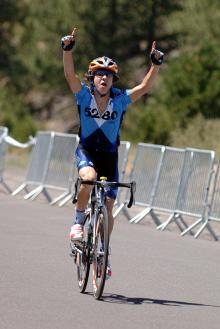
Based in the southeastern United States, Peter produces race coverage for all disciplines, edits news and writes features. The New Jersey native has 30 years of road racing and cyclo-cross experience, starting in the early 1980s as a Junior in the days of toe clips and leather hairnets. Over the years he's had the good fortune to race throughout the United States and has competed in national championships for both road and 'cross in the Junior and Masters categories. The passion for cycling started young, as before he switched to the road Peter's mission in life was catching big air on his BMX bike.